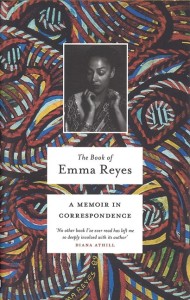
What if you grew up reading fairy tales, all the ones I found in a corner of the little stone library near our house: the Blue Fairy Book, the Yellow, the Brothers Grimm, Charles Perrault? Perhaps like Zoë you would come to believe that someday a fairy godmother would come or a magic cloak be given, a prince, a slipper, so that you yourself need do nothing but hold yourself in readiness, be calm and pleasant and passive.
What if you lived with your widowed mother, a sad and solitary woman, with no friends or even visitors aside from two of your mother’s cousins-in-law who descend on you with indigestible food, unsolicited advice, and unwelcome invitations before disappearing again (to yours and your mother’s relief)?
Zoë says:
After I had done my homework in the evening I would take up my position at the window. I liked to watch the lights go on in other houses, as if preparing for a wayfarer’s return. My reading had conditioned me to think in terms of wayfarers, so that footsteps on the pavement gave me an agreeable sensation that the stories contained enough authenticity to justify the fact that I still read them.
When Zoë is sixteen, her mother unexpectedly meets a man at one of the cousins’ parties and marries him, whereupon Simon whisks his new wife off to his home in Nice. Zoë is delighted with Simon but wants to stay in their old London flat. She is finally ready for freedom.
Freedom. It can mean so many things. As Zoë faces increasingly difficult challenges, she discovers different ways of being free, from sacrificing her own ideas and desires as she clings to an indifferent lover to Sartre’s existentialist freedom with its attendant responsibility and anguish.
As with all of Brookner’s work, this is an iceberg of a novel: brief and quiet on the surface, with a huge mass of emotions and ideas and insights hidden below. Narrated by Zoë, the story is built on scenes that bring to life both the quiet London dusk and the blazing sun of Nice.
With her usual penetrating psychological insights, Brookner provides fascinating portraits of the people Zoë interacts with, such as elderly Mme Levasseur whose face was somewhat twisted after a stroke, and her bitter disappointment when her grandson, a small child, refuses to kiss her.
As quietly brilliant sentences follow one upon the other, Zoë’s experiences bring her to a place where many of us have found ourselves. As poet Stevie Smith put it:
Oh I know we must put away the beautiful fairy stories
And learn to be good in a dull way without enchantment
Then we must read on to discover how Zoë will manage her new adult freedom. This most unusual coming-of-age story will deliver surprising insights if you will let it.
What coming-of-age story have you read that was especially memorable?

